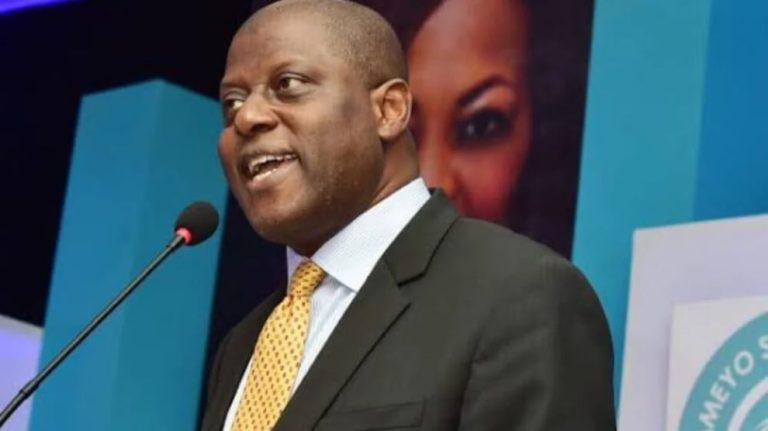Governor of the Central Bank of Nigeria (CBN), Dr. Yemi Cardoso has explained why the apex bank has been raising the monetary policy rates consecutively.
Cardoso, speaking at a press conference on Tuesday after the monetary policy committee’s (MPC) 297th meeting in Abuja, said that the multiple interest rate hikes have restored confidence in the naira.
The MPC at its meeting yesterday increased the monetary policy rate (MPR), which benchmarks the interest rates, to 27.25 percent in September from 26.75 percent in August – an increase of 50 basis points.
Cardoso, while defending the hikes said the monetary tightening has helped to moderate inflation.
“There was a situation where exchange rate was really running at an incredible pace and people were beginning to lose confidence in the currency,” he said.
“We believe that these multiple hikes have helped for people to now begin to take a different look at their currency, and there is a greater incentive to hold naira as opposed to a situation that we had before where this was not the case.”
Cardoso also said the CBN has worked to make the foreign exchange market more flexible and transparent by clearing the backlog of $7 billion and improving transparency in its operations and added that the central bank has rebuilt confidence in Nigeria’s financial system.
HOW N35 TRILLION INCREASE IN MONEY SUPPLY MOSTLY THROUGH WAYS AND MEANS POWERED INFLATION
The CBN Governor, Yemi Cardoso also revealed that money supply increased by N35 trillion within eight years due to ways and means advances. He said between 2015 and 2023, the country’s money supply rose from N19 trillion to N54 trillion. This increase according to Cardoso was driven majorly by the printing of money through the ways and means credit advance, which led to an alarming rate of liquidity into the economy.
“We came into a very loose money supply situation. Between 2015 and 2023, the past eight years witnessed an incredible amount of pumping of liquidity into the system,” Cardoso said.
“In 2015, money supply was about N19 trillion and in 2023, it was N54 trillion. That is a huge increase, a very, very huge increase, and a substantial amount of that was through ways and means.
“Essentially printing of money resulted in a huge amount of money chasing because this is the implication. Chasing the same amount of goods, a relatively small amount of goods growing at 1.2 percent during that time and money supply was growing at 12.6 percent. You can see the inherent distortion there.
“In other words, you had a situation where the response to excess money supply, little foreign exchange available was to fix exchange rates which now resulted in multiple exchange rates and arbitrage opportunities between one and the other and of course, this in itself, resulted in a backlog of foreign exchange, because this is where all these things have come from.
“Real sector at the time were obviously unable to access foreign exchange and things really got difficult and inflation continued to spike”, Cardoso pointed out.
The CBN governor also noted that one key reform under his administration was the attempt to harmonise the multiple exchange rates, which he said has yielded positive results.
“Including the fact that you no longer have these multiple windows and including the fact that exchange rate is a lot more flexible and people are more able to transact their businesses through willing buyer, willing seller, as opposed to a situation where multiple exchange rates discourages or does not enable that to happen,” Cardoso stated.

